5 Key Takeaways from the DASH Kickoff Meeting
In early February, 75 stakeholders met in Dallas, TX to kick off Data Across Health Sectors (DASH), a national program of the Robert Wood Johnson Foundation. The meeting occurred just a few weeks after ten grantees from across the country received awards totaling $2 million to support projects that improve health through multi-sector data sharing collaborations.
The meeting was structured to build a culture of sharing and learning among DASH grantees, advisory group members, and other national experts. Themes started to emerge as participants shared their insights. Here are five key takeaways from the meeting.
1. Learning the language of other sectors is key to effective collaboration.
In order to engage sectors beyond health care and public health, we must develop a common language. The first step is understanding what other sectors value so that we can align our strategies to achieve common goals.
“There are significant silos and different languages that are spoken between the healthcare sector and the social sector. We need more groups, organizations, and initiatives that are bridging that culture.”
- Ruben Amarasingham, MD, President and CEO, Parkland Center for Clinical Innovation
“Sit down and talk until you’re able to have a common language and a common understanding. That process is going to take time, but don’t walk away because it’s the hard work, but it’s the work that needs to be done to achieve the goal.”
- Ivor Horn, MD, MPH, Medical Director, Center for Diversity and Health Equity, Seattle Children’s Hospital
2. We can learn just as much from failure as we can from success.
In this complex work of building multi-sector partnerships to share data for community health, there will inevitably be failure. DASH’s collaborative learning model encourages projects to share both their triumphs and their mistakes so that we can make informed decisions as we move forward.
"If you fail at it, good. You tried. But share the learning. What we want to do is fail small and fail often, and every one of those walls we bounce off and stumble on, just learn from it and share that learning with others and I think we’ll chart a better course for everyone."
-Dave Ross, Director, Public Health Informatics Institute
"We should see failures as badges of honor and award people who can come forward and share those things. We don’t want to step on the same land mines as those that you are going to discover when you go out into the field."
-Aaron Seib, CEO, National Association for Trusted Exchange
3. Don’t be afraid to take risks and change course if necessary.
Because there is no road map for this type of work, it’s important to practice “agile leadership”—taking risks, but also remaining flexible and adapting our plans based on what we learn.
"Look for the gifts wrapped in barbed wire…Some of the things on my project that initially caused the largest anxiety about the hugest risk have also been my strongest tools."
-Carrie Hoff, Deputy Director, Health & Human Services Agency, San Diego County
"In order to truly innovate, you have to experiment. That doesn’t mean you’re going to have all the answers. That doesn’t mean you won’t make mistakes along the way. But the key is to be dynamic and not passive or retrospective."
- Chris Boone, PhD, Former CEO, Health Data Consortium
4. Make sure the people in your community have a seat at the table.
In order to make a real impact on health outcomes, listening to the community and giving them a voice is essential.
"It is critical to engage the community early to make sure there is buy in… The outcomes of the projects may require community groups to be part of the intervention, and this could be problematic if they aren’t involved on the front end."
- DASH Grantee
“Oftentimes, there is a lot of distance from the end consumer. The ability to use technology to tell their story is really going to be key to making the policy/advocacy efforts, the business case, and the behavioral changes that we need to see.”
-Aaron Truchil, MS, Director for Data, Research & Evaluation, Camden Health Coalition
5. If you want to go fast, go alone. If you want to go far, go together.
There is power in peer learning and collaboration. The DASH grantees, joining forces with similar initiatives like AcademyHealth’s Community Health Peer Learning Program, have a chance to help generate and accelerate knowledge by sharing insights and lessons learned.
“What you’re doing here is bigger than your own effort. It’s a part of something bigger. It makes me and the whole Foundation really excited about what we can do.”
-Hilary Heishman, MPH, Program Officer, RWJF
"My team is very proud to be selected as a grantee for DASH. It is clear that working with RWJF and DASH goes well beyond just delivering the grant goals. It really opens the opportunity to be part of a much larger national movement that DASH stands for."
- DASH Grantee

